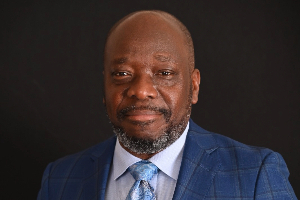The Central objective in decolonizing the African mind is to overthrow the authority which alien traditions exercise over the African. This demands the dismantling of white supremacist beliefs, and the structures which uphold them, in every area of African life. It must be stressed, however, that decolonization does not mean ignorance of foreign traditions; it simply means denial of their authority and withdrawal of allegiances from them—Chinweizu Ibekwe
Chinweizu has given us a powerful intellectual jolt to begin our discussion. Where do we exactly start? Well, let’s begin with two aspects of formal education. Indeed, the social and political technology of reading and writing probably constitute the two most powerful spiritual keys to the inner workings of nature and of the human mind. This is why we cannot overemphasize their importance in human development. Meanwhile, both have equally played essential roles in every facet of the evolution of human civilization. This is unequivocally evident all around us.
Also, one way or the other, our Gods, gods, goddesses, and ancestors have communicated to us through these creative cultural technologies. The Jewish God (and Jesus Christ) exists because the Bible, Talmud, and Torah exist. Allah and his prophet exist because the Koran and hadith exist. Okomfo Anokye and Odomankoma exist because our oral literature exists. Molefi Kete Asante, Chimamanda Ngozi Adichie, Kofi Awoonor, Wole Soyinka, Ama Ata Aidoo, Chinua Achebe, Toni Morrison, and several others have achieved greatness via reading and writing.
Yet, for the most part, knowledge acquired through reading and writing has mostly come from others’ accumulated knowledge. There is nothing particularly wrong with that. Given that humanity is an existential function of minds, spirits, bodies, and souls collected in a sea of complex matrices of relations, we are, therefore, bound to relate to our personal selves, sporadically, through the external selves of knowledgeable others. That makes us the most intelligent of social animals. Unfortunately, in matters of greed, jealousy, brutality, and territoriality, we are essentially no different from the animals we claim to be intelligent than.
We may theorize that getting to know the qualitative differences among knowledge, wisdom, and intelligence should be integral to the process of personality development. What about self-knowledge? In terms of psychological durability, how do self-knowledge and knowledge acquired through formal education compare? Do they complement each other? Moving away from these questions, let us grant them, that’s, critical reading and writing, creative continuity in refining our minds. It is also why we must overthrow the stereotypical comment: “If you want to hide something from a Black person, put it in a book.” Again, we must focus on critical thinking as well since it constitutes the transformative link between theory and praxis.
Granted all the foregoing, isn’t it high time we seriously looked at the power of formal education, principally Eurocentric pedagogy, to place us in the shackles of psychological and cultural alienation? It turned out that others have taken note of this aspect of Eurocentric education. Fouad Mami writes in “Ayi Kwei Armah’s Intellectual of the African Renaissance”: “For Armah, an intellectual renaissance in Africa cannot be generated unless authentic African intellectuals combat the Eurocentric and potentially destructive reflexes that shape and define neo-colonial schools.” Ironically, contrary to what readers may make of Ayi Kwei Armah’s influential novel “The Beautyful Ones Are Not Yet Born,” another scholar, Kwame Ayivor, believes “The Beautyful Ones Were Born And Murdered.” How truthfully crisp to put it!
In the interest of cultural interpretation, what is this discerning writer, Fouad Mami, saying? He’s saying that Eurocentric education has not served the African world well. In this context, he proposes through Armah’s novelistic intellectualization an alternative. What is the alternative then? Afrocentric education. Mami continues: “Instead of being rewarding and liberating, Western education is seen by Armah as an institutional machinery that indoctrinates African minds in submission to Western power and blinds the same minds from ever aspiring to a just world order.” Therefore, since Afrocentric pedagogy stands as intellectual antithesis to Eurocentric arrogance, hegemony, and ignorance, it’s our firm belief that it’s where the African world must look for cultural sustenance!
Moreover, reversing the negative trends of Eurocentric pedagogy in our institutional structures formed the ideological basis for the “Decolonizing Our Universities” international conference held in Penang, Malaysia, 2011. In fact, the evidential shortcomings of Eurocentric education are seen all over the African world: Political ineptitude, materialism, political elitism and arrogance, Eurocentric tribalism, anomie, bureaucracy and institutional bottlenecks, inferiority complex, social hopelessness, blind worship of whiteness, lack of moral leadership, political kleptomania, spiritual cluelessness, and the like. It’s no wonder there is a growing intellectual chorus for Africa to return to the fount of her indigenous institutions. Suddenly, a segment of Africa’s intelligentsia is acknowledging the moral advantage which indigenous African institutions wield over Western institutions. Why now?
Now, the progressive views raised and thoroughly discussed at the “Decolonizing Our Universities” conference have immediate social and pedagogical relevance to our demand for the radical restructuring of our Eurocentric educational institutions. The theoretical formulae for actualizing the restructuring of our failing educational institutions have been developed by many experts in varied intellectual disciplines. These formulaic pedagogical paradigms come in several forms. Furthermore, we are quick to credit Harvard’s developmental psychologist, Howard Gardner, with discovering the “theory of multiple intelligences” to nurture, harness, and harvest the diversity of gifts harbored in the psychological and physical spaces of humanity, yet Molefi Kete Asante’s “The Asante Principles For The Afrocentric Curriculum” overlaps Gardner’s ideas.
Summarily, the Asantean principles tackle questions involving the role of the individual in his/her community; personal and public knowledge of wellness and biology; the importance of creativity and artistic expression; location in time and space—which includes studying chronology, geography, and mathematics concepts; production and distribution; the importance of power and authority; the harnessing of technology and acquisition of scientific knowledge and their applications to problem-solving; the intersection between choice and consequences; society and the world—a question dealing with issues of multiculturalism in a non-racist, non-sexist, non-hegemonic, and diverse world.
In another essay, “The Role Of An Afrocentric Ideology,” Molefi Kete Asante, a polymath, writes: (1) There must be an active and genuine promotion of African culture as determined by symbols, motifs, rituals, education, scripts, proverbs, and ceremonies, (2) There must be an emotional attachment to the subject-place of Africans in any social, political, economic, architectural, literary, or religious phenomenon with implications for gender and class consideration, (3) There must be an active defense of African cultural elements as historically valid in the context of art, music, education, science, and literature, and (4) There must be a celebration of “centeredness” and agency and an uncompromising commitment to lexical refinement that eliminates pejoratives about Africans,
Asante continues: (5) There must be a powerful imperative from innovative research sources to revise the collective text of African people, (6) There must be a massive acceptance of Africa as “The Nation that Embraces Diversity,” and (7) There must be an openness to include all of the achievements and contributions of African people as the collective gift of Africa to humanity. Actually, Asante’s fifth point seems to coincide with Ngugi wa Thiong’o’s intention to write in his native Kikuyu because he realized that so many English words used in connection with Africa and Africans had and still have negative connotations. The sixth point deals with overcoming ethnocentrism (ethnic chauvinism or nationalism), White racism, cultural racism, and Arab racism.
How do we conclude? We shall ask our readers to go further than the narrow ideas we have presented here to read Said’s “Culture And Imperialism” and “Orientalism”; Mazama’s “Africa In The 21st Century”; Asante’s “The History of Africa” and “The Painful Demise Of Eurocentrism”; Chinweizu’s “Decolonizing The African Mind”; Thiong’o’s “Something Torn And New” and “Decolonizing The Mind”; Fanon’s “The Wretched Of The Earth” and “Black Skin, White Masks”; Memmi’s “The Colonizer And The Colonized”; Hochschild’s “King Leopold Ghost,” Aimé Césaire’s “Discourse On Colonialism”; Rodney’s “How Europe Underdeveloped Africa”; and Burrell’s “Brainwashed: Challenging The Myth of Black Inferiority.”
Let’s also add the following: Diop’s “Towards The African Renaissance: Essays In African,” Civilization Or Barbarism,” “African Origin of Civilization,” “Black Africa: The Economic And Cultural Basis For A Federated State,” and “Pre-colonial Black Africa”; Asante’s “As I Run Toward Africa”; Esman’s “Ethnic Politics”; and Asante’s and Mazama’s edited volume “The Encyclopedia Of African Religion.”
In fact, we need to study the progressive ethos and pathos of African Religion alongside non-African religions. After all, Islam and Christianity have done more harm to Africa than African Religion. On the other hand, we need to reject Ali Mazrui’s lame excuse that Africa has never created any major religion. We shall call on him one day to revise his tattered and tired Eurocentric notes once he’s done reading Jared Diamond’s “Guns, Germs, And Steel: The Fate of Human Societies” or seen the documentary accompanying the book. Finally, any ideas to be employed and used in the radical restructuring of our failing educational educations in order to make them more amenable to the challenging actualities of modernity must take into consideration the totality of all the progressive suggestions we have raised in this essay and of those in our recommended bibliographies.
We shall return with a sequel!
Opinions of Thursday, 28 November 2013
Columnist: Kwarteng, Francis














